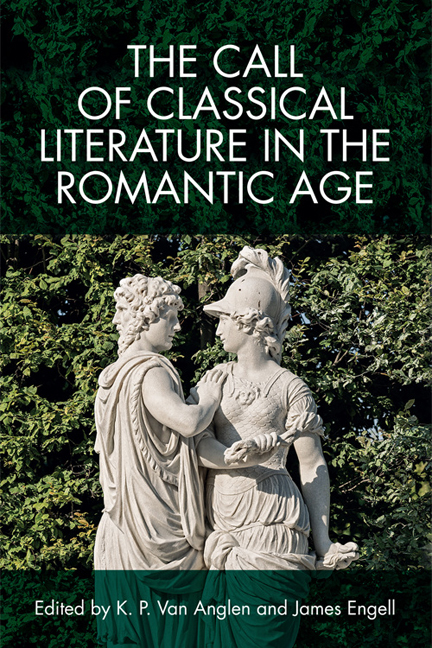12 - Gibbon, Virgil, and the Victorians: Appropriating the Matter of Rome and Renovating the Epic Career
Published online by Cambridge University Press: 06 May 2021
Summary
The Essence of My Argument: Gibbon to Ruskin to Proust and Beyond
To fill the ditch, was the toil of the besiegers; to clear away the rubbish, was the safety of the besieged; and, after a long and bloody conflict, the web that had been woven in the day was still unraveled in the night.
Although Wordsworth, the strongest, to use Harold Bloom's term, English romantic poet, expended some of his strength translating Virgil's Aeneid, and although Tennyson, his successor as laureate and the definitive Victorian poet, remains the most Virgilian among the major English poets, still the established view holds true that Virgil's critical and cultural stock dropped sharply, especially in comparison to Homer's primitive originality, as urbane eighteenthcentury neoclassical standards ceded to nineteenth-century romantic ones such as Schiller's notion of the naïve. Ironically, during just this period and development, Virgil's most abiding claim, his long dominance of the matter of Rome, was itself succumbing to a rival, one not less but more urbane, namely, the supremely elegant Edward Gibbon. His judicious and rationalized prose history, not the poet's learned and secondary epic, became, for numerous aspiring historians, poets, and novelists, the go-to source for productive encounters with Rome's cultural significance. What's more, Gibbon's pretensions exceeded supplanting Mantuan Virgil to challenging Carthaginian Augustine (and his Versailles epigone Bossuet, whose suave polemics had led to Gibbon's brief conversion to Roman Catholicism). Augustine immortalized his personal repudiation of Virgilian pathos in his Confessions and his historical rejection of Virgil's Rome in his City of God for Biblical models of individual suffering, salvation, and seeking for a more truly eternal city. Gibbon's monumental reworking of Virgil simultaneously and notoriously doubted, even satirized Augustinian hopes for personal salvation along with the claims of his Christianized Rome. This questioning was part of a larger eighteenth-century phenomenon, one surveyed delightfully by Carl Becker in his Heavenly City of the Eighteenth-Century Philosophers, but epitomized by Gibbon's life and work. Thus, to return to Wordsworth, this poet and translator of Virgil evinces Gibbon's remarkable, though unremarked upon achievement when he cites, in book one of his Prelude (1850), the story of Odin's Gothic revenge upon Roman tyranny as the most tempting among many possible epic themes: yet he found this imperial subject, not in The Aeneid, but in The Decline and Fall of the Roman Empire (1776–88).
- Type
- Chapter
- Information
- The Call of Classical Literature in the Romantic Age , pp. 313 - 338Publisher: Edinburgh University PressPrint publication year: 2017



